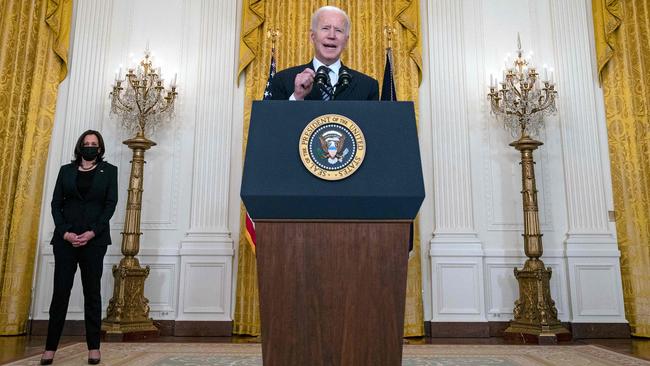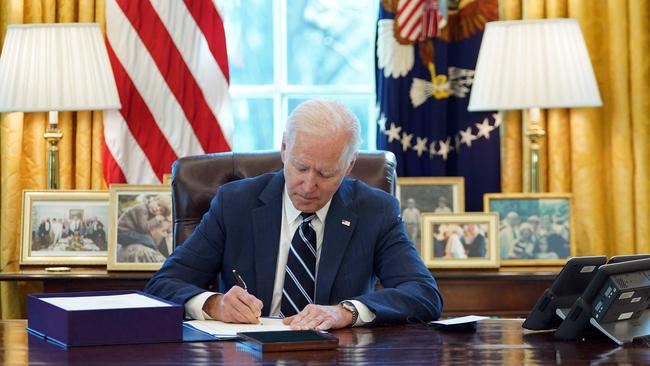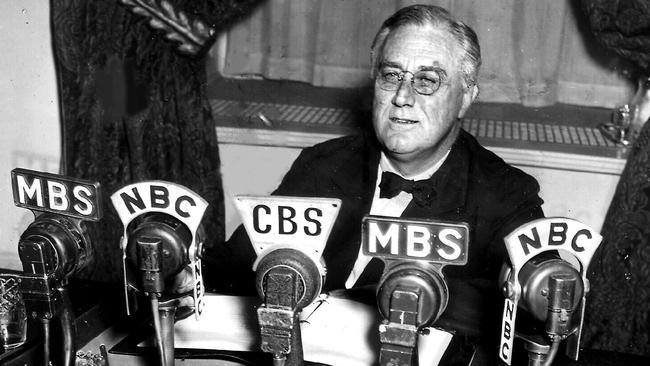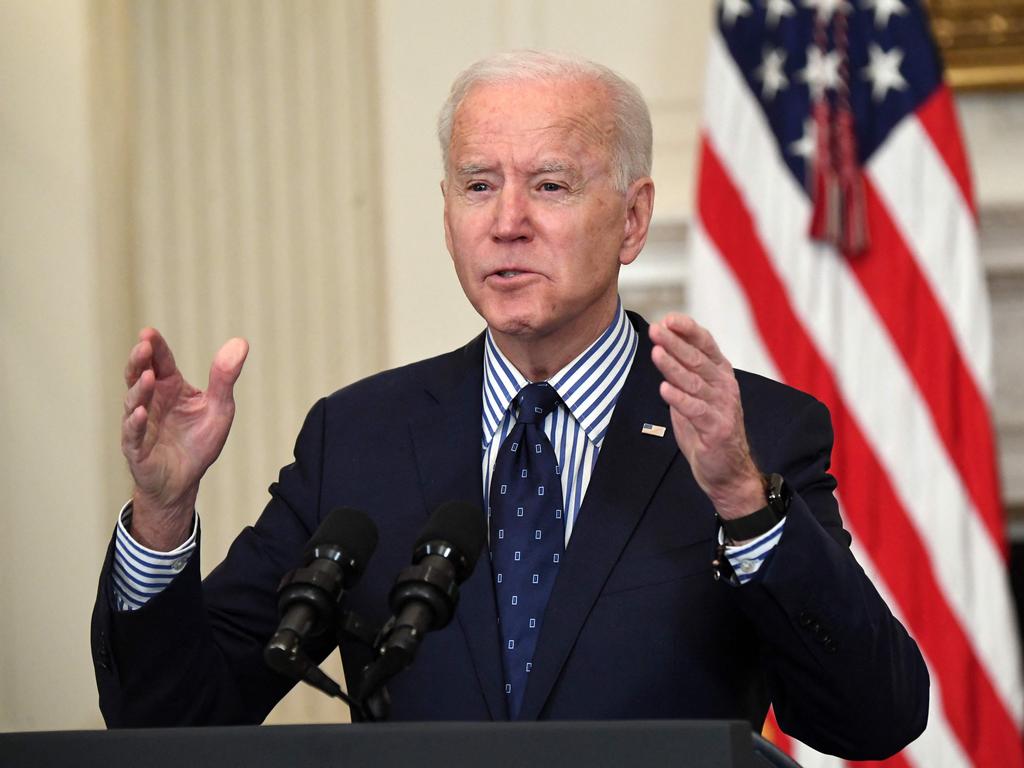Biden’s Liberal revolution looks a risky bet
Unlike past reforming leaders, Biden doesn’t have a popular mandate for such an ambitious assault on the existing order.

“Few thought him even a starter,
Many considered themselves smarter.
But he ended PM,
CH and OM
An Earl and a Knight of the Garter.”
Joe Biden’s political career was derailed once by an unauthorised imitation of a leader of the Labour Party. His plagiarism of a Neil Kinnock speech about his humble origins undid him in his first presidential run in 1988. Decades later, and a few months after his successful presidential bid, it might be time to ask whether it’s the performance of another Labour leader that Biden is emulating.
Clement Attlee penned that bit of doggerel about himself and the tendency of his contemporaries to underestimate him after he had done his part to transform Britain after 1945.
There’s no order of merit or companionship of honour in store for Biden but he has also been much underestimated, by friends and rivals alike. A few months into his presidency it seems that, just as Attlee’s somewhat diffident manner was at odds with his radical, progressive ambition for his country, Sleepy Joe’s aim is the transformation of America.
The Biden administration’s leading protagonists see this moment as a pivotal one, not unlike that in which Britain found itself at the end of the Second World War. As in 1945, a national trauma may have changed the way people think about society, creating an appetite for a significantly larger role for the state in the economy, taxpayer-funded provision of health and education, generous welfare measures and redistributive policies to reduce inequality.
The enactment last week of the president’s American Rescue Plan has been widely described, by admirers and critics alike, as the most progressive piece of economic legislation in decades. At a cost of $2.45 trillion, or close to 10 per cent of American gross domestic product, it represents a break with the political consensus of the last few decades, a rebuttal to Bill Clinton’s famous declaration of a quarter of a century ago that “the era of big government is over”.
“It changes the paradigm,” Biden said as he signed the legislation. Among its provisions are a big expansion of child tax credits for lower income families, extended unemployment benefits, public support for health and schools. The thunder of legislative activism follows the lightning of executive fiat that has characterised the first months of Biden’s presidency: measures to begin the dismantling of much of the nation’s traditional energy production, open up the nation’s borders, advance the modern cultural revolution by promoting racial “equity”.

Of the ambition and the radicalism there can be no doubt. But there’s a potential problem for Biden when you compare his circumstances to those of other reforming leaders of the last century, such as Attlee: the near-total absence of a mandate for this sort of change.
Attlee’s Labour Party won election at the end of the war with a majority of 145, reflecting a 12 percentage point lead in the popular vote over the Conservatives. Similar electoral landslides precipitated every single one of the great transformational presidencies in recent US history, too: Roosevelt in 1932 followed by the New Deal; Johnson in 1964 and the Great Society; and Reagan in 1980 and the neoliberal era.
FDR won the presidential election in 1932 by 18 points, taking all but six states. His Democratic Party won three quarters of the seats in the House and almost two thirds of the seats in the Senate. In 1964, LBJ won the popular vote by 22 percentage points, and again, all but six states. The Democrats won more than two thirds of the House seats and 68 seats in the Senate.

In 1980, Reagan won by almost ten percentage points and, again as it happens, lost only six states. His Republicans carried the senate by a narrower margin, 53 seats to 46. But that represented a gain of 12 seats; more than a third of those contested. Democrats maintained their decades-long grip on the House but Republicans gained a whopping 34 seats.
Biden won the presidency last year by less than 4.5 percentage points. He lost 25 states. His party lost seats in the House, where they enjoy a razor-thin majority, and fought the Republicans to a tie in the Senate.
It’s true we live in more partisan times than we did in 1932, 1964 or 1980. Ideological cohesion of the two parties is much greater. And Democrats will say that Biden is only following Donald Trump’s radicalism - and he didn’t even win a majority of the popular vote, though I do recall he met considerably more resistance to his plans than the current president. They can also point to large majorities of public opinion in favour of their economic plan (yes, it turns out giving away money is popular).
Democrats are gambling that the economic recovery from Covid will be so rapid, the mental release from a year of misery so fulfilling, that voters will validate their progressive revolution. They’re betting on a kind of retrospective mandate.
It’s a risky bet. Without a popular mandate, Biden faces peril in mounting such an ambitious assault on the existing order. Events, some perhaps foreseeable - a burst of inflation; a gathering immigration crisis at the border - some not, will test his authority in areas of policy on which there is no consensus.
To transform a nation and inaugurate a new political era requires not just the necessary legislative majority but widespread popular consent. Biden is trying to do it in a nation in which almost half the people think he shouldn’t even be president.
The Times







